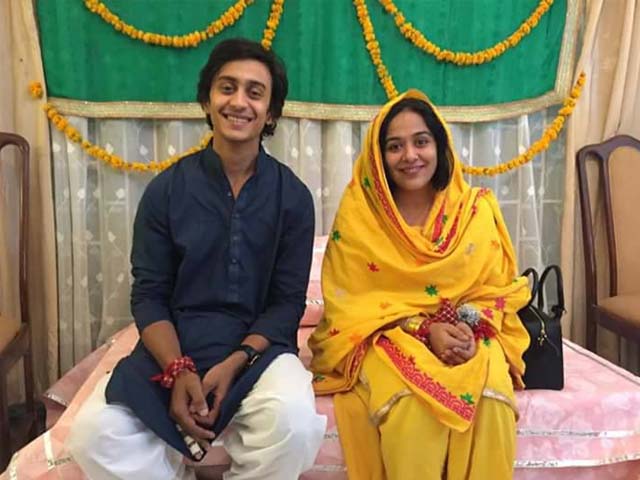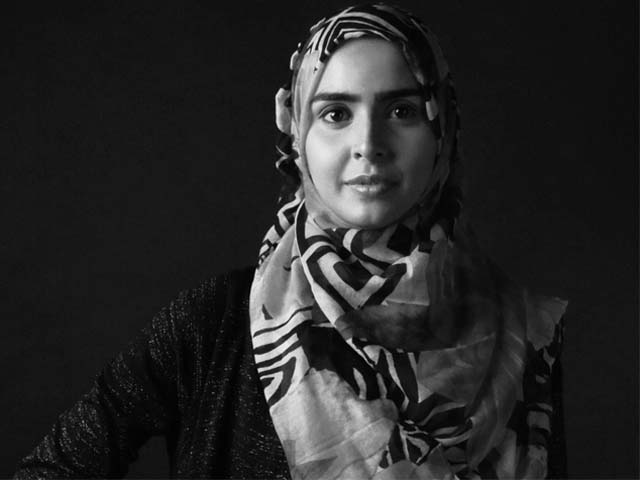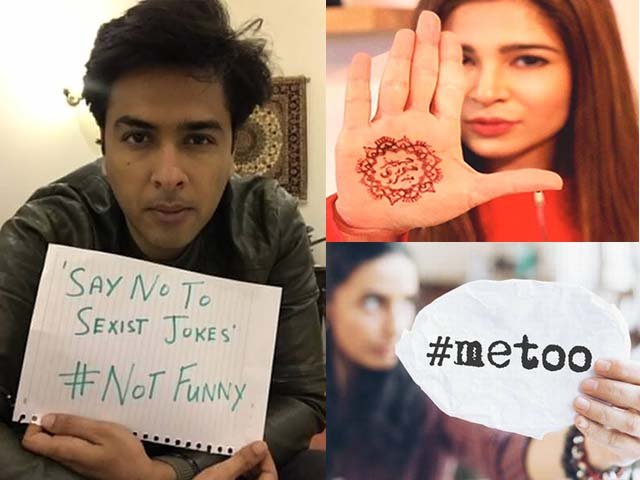
Yasra’s unconventional mehr was something many had not heard of. PHOTO: FACEBOOK.
Did Yasra Rizvi deserve to be trolled for her unconventional mehr?
Mehr is an absolutely obligatory clause of the marriage contract for Muslims, no matter how big or small the amount.
When actress Yasra Rizvi set out to marry Abdul Hadi, little did she know that her claim to fame will be that she married a man 10 years younger and her mehr, which her husband agreed to, is Fajr prayer (obligatory morning prayers for Muslims). The couple was scrutinised harshly through the lens of a magnifying glass, and was trolled on social media for one simple reason – they dared to do something against the norm. And nothing scares us like what we do not understand.
People are still familiar with the older-woman-weds-younger-man scenario, even though they see it as abominable, even those who harp on about how important following the example of the Prophet (pbuh) is, forget that it is also his Sunnah that he married a woman 15 years his senior at the prime of his youth.
But Yasra’s unconventional mehr was something many had not heard of. We, as a nation, have common misconceptions about this Islamic tenet, stemming from a lack of awareness. Yasra, thank you! You taking this step out of the norm may just have triggered a debate that could result in some authentic information regarding the concept of mehr trickling into our collective narrative.
Here are just a few very basic facts about the concept of mehr. While these are just a few pointers, I hope this will encourage us to talk about mehr and help expose some myths:
Mehr (also called haq mehr) is a mandatory payment of tangible assets, currency, property or an intangible, conditional commitment or understanding that both parties agree upon.
Yes, a mehr can be intangible, as is in Yasra Rizvi’s case. The best example of an intangible mehr comes from the Sahabiya Umm Sulaym Bint Milhan al-Ansarriyah (ra) who agreed to marry Abu Talha (ra), and the mehr was him accepting Islam.
Islam has not fixed an upper or lower limit of mehr. It will depend upon the financial standing of both the man and the woman.
While no amount or limit has been prescribed, it shouldn’t be an amount so extravagant that the man cannot afford to pay (and is just fixed to portray financial or social standing). Nor should it be so miniscule that the tenet appears to have been taken lightly. However, once again, no sum or limit has been set, neither upper nor lower.
The amount is to be decided upon after mutual consultation between the man and the woman tying the knot. This is one more reason why the couple entering into the contract read through and understand the clauses of the nikkah nama, and the terms are mutually agreed upon. If elders of the family help with the consultation, it should be made sure that the man and the woman are on the same page and are aware of the agreement.
Mehr is an absolutely obligatory clause of the contract of marriage for Muslims, no matter how big or small the amount.
Mehr is designed as a means of security and protection for the woman. It will be the sole property of the woman and she will have discretion over how and when to spend it. It is therefore a part of the nikkah, and its payment is not conditional with or tied to the incidence of talaaq (divorce). It is therefore strongly recommended that it is paid at the time of the nikkah. However, if there is a genuine reason why it cannot be paid at that time, mawajjal/muakhhar (deferred/promised) rather than mo’ajjal/muqaddam (immediate/prompt), then it should be paid as soon as the man can afford to pay it. Till such time that he pays it to her, it is considered a kind of debt that he owes to his wife. Islam makes clear that if he cannot pay it at that given time, he should intend on paying it at the earliest.
Upon a man’s death, all that he leaves behind as inheritance for his heirs may not be distributed among the inheritors until all payments or debts he owes to anyone are paid off, which includes the mehr.
No man who wishes to marry a woman is exempt from mehr. Thus, the custom of asking the wife to “forgive him the mehr” is not in line with Islamic tenets.
Knowledge gives one the power to make informed decisions. Yasra used that power. Instead of wasting time judging her decision, it’s best to learn more so that we, too, can make informed decisions.
Information shared in this write-up is based on authentic Islamic traditions.




COMMENTS (10)
Comments are moderated and generally will be posted if they are on-topic and not abusive.
For more information, please see our Comments FAQ